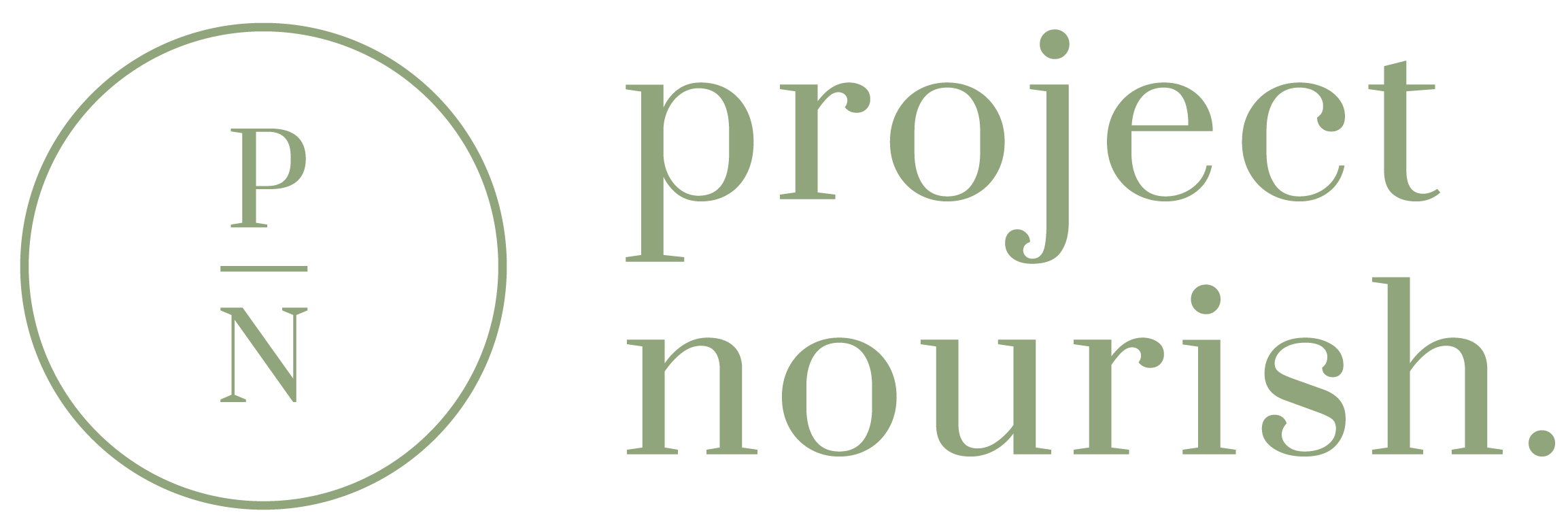Almond Milk Recommendations & Review
One of the questions I get asked the most is about which brand of products to buy. Surprisingly, almond milk is one of the most frequently asked about products, so I thought it would be a great time to make this into an informative blog post.
As a nutritionist that focuses on whole foods, the main thing I look at when choosing a product is the ingredients list. Is the product made up of real foods? If yes then it's an option. If no, put that back on the shelf.
Of course there are things on the nutrition panel that can also be taken into consideration, but if the ingredients are terrible then there's no point even looking at the values on the nutrition panel.
I’ll do a seperate blog post about how to read a nutrition panel, but for today let’s dive into which brands of almond milks I do and don’t recommend.
Recommended almond milk brands:
The two almond milk brands I recommend are Nutty Bruce and Pure Harvest. The same goes for all plant milks, these are generally my go-to brands for all my non-dairy milk needs.
Let’s take a look at these brands and their real food ingredients:
Nutty Bruce
Unsweetened Activated Almond Milk Ingredients: Filtered Water, Activated Organic Almonds (7%) (Almonds, Water), Organic Brown Rice, Sea Salt.
Sweetened Activated Almond Milk Ingredients: Filtered water (84.5%), Activated Organic Almonds (10%) (Almonds, Water), Organic Brown Rice Syrup, Sea Salt.
Pure Harvest
Unsweetened Activated Almond Milk Ingredients: Filtered Water, Organic Activated Almonds (7%), Organic Brown Rice, Sea Salt, Natural Almond Essence
Sweetened Activated Almond Milk Ingredients: Filtered Water, Organic Activated Almonds (10%), Organic Rice Syrup, Sea Salt
Both of these brands and these particular products use activated almonds and organic, real food ingredients, so they get a big tick of approval from me!
Why I don’t recommend Milk Lab:
An almond milk that I see in cafes all the time is Milk Lab, which is unfortunately not a good product and one that I don't recommend buying or consuming.
The reason for this can be found in the ingredients list…
Ingredients: Australian Water, Almonds (3.5%), Sugar, Sunflower Oil, Maltodextrin (From Corn), Acidity Regulators (340, 332), Stabilisers (418, 415, 410), Sunflower Lecithin, Salt.
As you can see, there is a very small percentage of almonds, and a whole host of acidity regulators and stabilisers, just to name the obvious. Generally, seeing numbers in and ingredients list is a no from me. Try to avoid the milk lab milks when buying your latte from a cafe, and if I personally wouldn’t be buying this one for home either.
What to look for in a good almond milk:
Aside from the ingredients, one of the things I recommend looking out for in Almond milks is the percentage of almonds. Is it only 3 percent? If so, it's basically expensive filtered water, don't be deceived.
Other brands to watch out for:
The brand So Good, is also unfortunately not so good - please don't be deceived by the name and clever marketing.
Ingredients: Filtered water, almonds (2.5%), mineral (calcium), emulsifier (sunflower lecithin), natural flavour, salt, mineral salt (sodium bicarbonate), vegetable gum (gellan), antioxidant (ascorbic acid), vitamins (B12, B2, B1).
We can see here, that its only 2.5% almonds, which really just makes it an expensive filtered water.
Another milk I don’t recommend is the almond milk from Almond Breeze, let’s take a look at the ingredients to see why.
Ingredients: Filtered Water, Ground Whole Almonds (2.5%), Tapioca Starch, Mineral Salt (Calcium Carbonate [Ground Limestone]), Salt, Stabiliser (Carrageenan), Emulsifier (Sunflower Lecithin), Natural Flavour.
Again, there’s only 2.5% almonds, what’s the point? They also have natural flavour in it, which I recommend limiting - despite it saying ‘natural’ this is an umbrella term and can actually have a whole host of processed ingredients that just happen to be derived from a natural source originally.
The ultimate option for almond milk:
The best way to go is always going to be homemade almond milk. It’s better for the environment because it doesn’t waste a whole heap of packaging, and you know exactly what goes into it making it the best option for your health.
If you don’t have time to make it from scratch, you can also get nut milk bases from Ulu Hye. All you do is add it to your blender with water and blitz.
Let’s talk sustainability:
Did you know that almond milk is actually one of the less sustainable plant milks. It’s still more sustainable than cows milk, but compared to other plant options it doesn’t quite hold up. This has to do with the amount of water needed to grow the almonds. To combat this, try incorporating variety into which plant milks you drink. I’m always talking about variety in general, so the same goes for milks.
There you have it, a nutritionists guide to almond milks. I hope you now feel equipped to navigate the shop isles and choose the best option.

